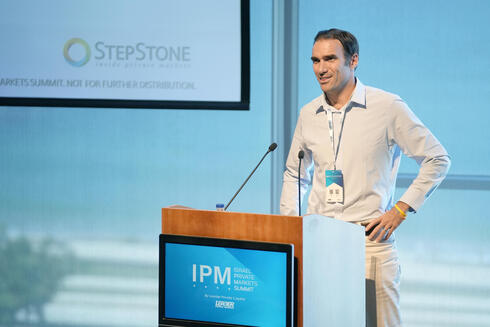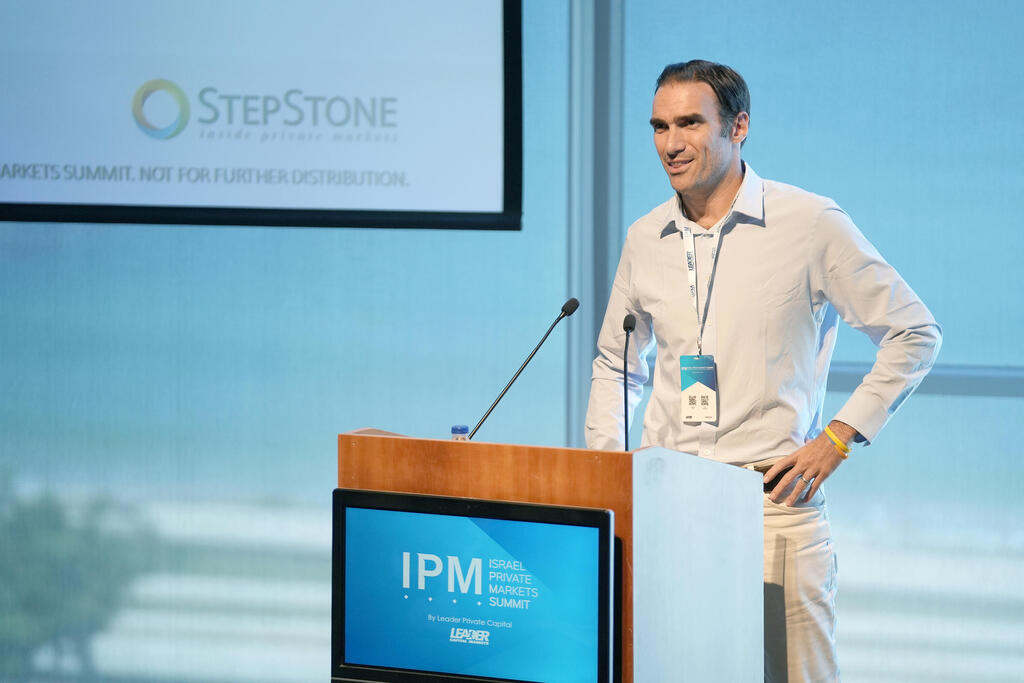
"There is currently a trillion dollars trapped in VC funds and investors are desperate for liquidity”
"The current market situation is the perfect storm for us. Investors, who may have initially expected 7x or 5x returns in venture capital, are now willing to liquidate even for a 2x return,” explained John Avirett, a Partner at StepStone VC, who is in Israel raising money from institutional investors for a new $3 billion secondary fund
In the last decade, a staggering 1,200 venture capital funds emerged, marking one of the tech sector's most remarkable periods. This era witnessed an influx of hundreds of billions of dollars from both seasoned and novice investors, drawn by promises of dream returns as long as the unicorn factory kept galloping.
The years 2021 and 2022 became industry milestones with record fundraising surpassing $300 billion, and even the Israeli venture capital market joined in the celebration. However, the winds shifted in 2023, leaving many disillusioned from their VC ventures as valuation levels plummeted, new fundraising rounds vanished, and exits disappeared from the horizon.
"There is currently a trillion dollars trapped in venture capital funds," reveals John Avirett, a Partner at StepStone VC, in an exclusive interview with Calcalist. "Investors in these funds are desperate for liquidity and want to reclaim their money, or at least a portion of it. We’re seeing many pension funds and family offices, who entered the VC adventure, looking to cash in at least some of their chips."
Enter secondary funds, which are gaining momentum globally and expanding their footprint in Israel. Israeli investors have confirmed StepStone is currently engaged in road shows with institutional investors, led by Leader Private Capital, as part of its sixth fund's fundraising. According to Preqin and other sources, StepStone has established an ambitious goal to raise approximately $3 billion, with commitments already secured for a portion of that amount. In Israel, StepStone is not only engaging institutions but also addressing qualified investors. The target market: the $1.3 trillion of unrealized assets residing in venture capital funds raised between 2010 and 2018, according to data from the research company Preqin.
StepStone isn't alone in seeking a slice of this lucrative pie. In recent months, Sunvest Capital Partners, led by industry veterans Fiona Darmon and Merav Weinryb, has also entered the arena. Darmon was a General Partner in the JVP fund, while Weinryb was previously Vice President and Managing Director of Qualcomm Ventures for Europe and Israel.
The StepStone Group, which manages assets of about $111 billion, set up StepStone VC in 2021. StepStone VC manages around $28 billion intended for acquiring holdings from venture capital funds and shares from employees at high-tech companies.
StepStone has already completed several deals in Israel over recent years, including acquiring assets from Vertex’s fourth fund for $150 million and paying $20 million for 12% of Group 11's second fund.
Despite StepStone's refusal to disclose the secondary fund's yield, its latest fund is ranked in first place for performance by both Pitchbook and Preqin.
"The current market situation is the perfect storm for us, and we anticipate it will persist at least throughout 2024, and likely beyond," states Avirett. "While we conduct most transactions in a bear market, today's landscape differs. In 2009, for example, there was such a gap between supply and demand that it was almost impossible to close deals. However now, investors, who may have initially expected 7x or 5x returns in venture capital, are willing to liquidate even for a 2x return. They understand that a significant portion of their profits exists on paper, and waiting longer might mean not seeing the money at all.
“According to the models of pension funds and other institutional investors, they are supposed to see some returns from their investments every year but that isn’t happening. At the same time, and despite the disappointment of some investors, VCs want to raise new funds, but if their potential investors are struggling for liquidity they will not be investing in a new fund.”
The perfect storm Avirett is referring to is the result of the doubling of waiting times for an IPO in recent years, reaching 10 years compared to the pre-2008 crisis period of 5 years. Simultaneously, venture capital funds are turning to investors for more money more frequently – every two years, compared to the previous four-year cycle.
StepStone's fund model hinges on the frustration of stuck investors. The fund allows both Limited Partners (LP) and General Partners (GP) to sell their shares in companies at a discount to their latest valuation. StepStone primarily targets funds specializing in early investment stages, which made initial investments long ago but haven't had the opportunity to realize holdings. These funds often grapple with companies listed at high values since 2021, with no anticipated exit at a higher value in the foreseeable future. StepStone's recent transactions in Israel include discounted stakes in companies like Next Insurance, Yotpo, Navan, Tipalti, Verbit, and Axonius. According to data from the investment bank Jefferies, cited enthusiastically by Avirett, the average discount in secondary transactions today is 30% on the value recorded in VC books, with deeper discounts in some cases.
"If a fund manager doesn't adjust valuations from the aggressive pricing of 2021, a 30% discount isn't a good deal from our perspective; it's quite expensive. On the other hand, managers who have already reduced valuations by 50% compared to the peak make us comfortable with a 10% discount," explains Avirett. "Much depends on the portfolio's company quality and future potential – whether it's a sale to an investment fund, a strategic buyer, or an IPO as the market opens up. We prefer eliminating the worst companies early on to prevent them from lingering in the portfolio."
The dynamics sometimes shift in the opposite direction, as seen with Tiger Global, the most active investor in high-tech in 2021, including in Israel. Tiger Global, originally a hedge fund, realized it couldn't quickly realize the inflated portfolio built during the boom years, if at all. In recent months, it has sought buyers for its holdings in companies.
"The case of Tiger Global and similar investors creates a new growing market for us,” said Avirett. “The purchase isn't of a portfolio, but of significant stakes in specific companies where we see potential. This aligns with the activity seen in the past year in the secondary market involving former employees in high-tech companies, founders, and angels. Until 2022, share pricing was dictated by demand, occurring simultaneously with capital raisings at the same value. Today, the best companies are reluctant to raise new rounds, but private individuals seek liquidity. Negotiating with them doesn't tie to the company's previous value."













